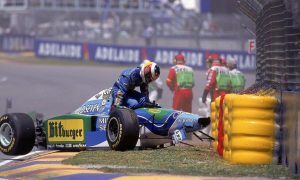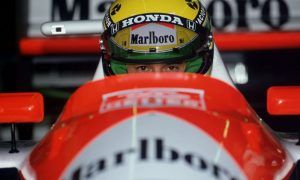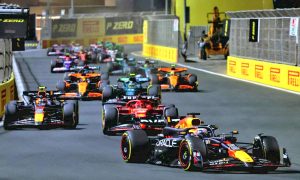
Does Haas have a plan for success - or an exit strategy?
Let's be clear, there was definite sense in not wanting to throw good money after bad and opting instead to batten down the hatches for a year; but it's unusual for any sporting franchise in a major championship to simply give up altogether before the season even starts. Haas duly got what it deserved at the end of 2021: they finished dead last having not scored a single point. But at least their plans were now well set for the following year when the new rules came in. Right?
Unfortunately those plans were knocked off-kilter by Russia's invasion of Ukraine just as pre-season testing got underway. It forced them to sever links with both Mazepin and title sponsor Uralkali. The last-minute timing meant they had little alternative but to recall Magnussen, a public admission if ever there was one that the team had made a mistake. Increased investment in the car was evident in the first half of the season, but once the money from Uralkali ran out and with Gene Haas unwilling to pour in huge sums from his own pocket, the team went back into a decline and scored just three points in the final 11 races.
Guenther Steiner - who had himself become quite the breakout star of F1 thanks to his outspoken comments on the Netflix Drive to Survive behind-the-scenes documentary - seemed to fix on the crash-prone Mick Schumacher as reason for the team's problems and cash shortage. He dropped him at the end of the season and recalled another veteran driver who had thought he had run his last Grand Prix in the form of Nico Hulkenberg. But both he and Magnussen were stymied by a VF-23 that was almost cartoonishly hard on its tyres over race distance: no matter how good the drivers performed in single-lap qualifying, within ten laps both cars would be plummeting down the order. As a result, a full half of all their points for 2023 came from one weekend in Australia. And they still came last in the standings.

Haas seems to have no answer to any of this. Once again it feels like they simply surrendered as soon as they hit the first sign of problems. Upgrades have been few and far between and made little if any difference to their plight. Their singular innovation was a shorter pit wall unit, and that was to cut costs in transportation and personnel rather than for any sporting advantage. Overall it felt like they were embarrassed to be there, while other aspiring outfits like Andretti Global keen to join F1 are being fended off - apparently because other team principals think they're not bringing anything 'meaningful' to the sport.
It's almost as though Haas is just holding on until Andretti's official bid to join F1 is rejected. Then they can hike up the price for their own existing grid spot, which would be the only entry path remaining for Andretti. For now, Haas is giving the impression of doing the absolute least possible to keep the squad turning over while waiting for the right figure to be mentioned.
Keep up to date with all the F1 news via Facebook and Twitter







